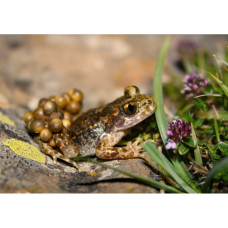Les séminaires de l’ISYEB - Liliana Ballesteros, ISYEB, CESAB/FRB Postdoc.

Les séminaires de l'ISYEB

Les séminaires de l'ISYEB
Saturniid and sphingid moths as novel models for the study of insect diversity and macroecology
IMPORTANT : les séminaires de l’ISYEB peuvent maintenant être validés comme module de l’ED 227. Si vous êtes intéressé, envoyez-moi un mail.
Insects are the most speciose group of terrestrial organisms and are strongly affected by global environmental and climatic changes. They exhibit a remarkable variety of forms and life history trait combinations not represented among vertebrates and are responsible for many ecosystem services and disservices. Yet, our knowledge of their diversity and distributions, as well as our understanding of their evolution and diversification dynamics through space and time, remains fragmentary.
We have identified a group of herbivorous insects – the Saturniidae and Sphingidae, two sister families of moths – that represent an unparalleled insect model. This group comprises about 5000 species and has been thoroughly documented worldwide, through comprehensive DNA barcode libraries, hundreds of thousands of occurrence records in databases, and a broad documentation of their life histories. Thus, they offer for the first time an opportunity to study patterns of diversity and distribution at a global scale in insects, together with their underlying macroevolutionary processes.
Here we present the comprehensive database built by our research group and the different approaches – such as integrative taxonomy, biogeographical analyses, phylogenomics, analysis of traits and community ecology – that we combine to address key questions about the macroecological patterns and the evolutionary history of these moths.
This is the first time that such a holistic approach will have been applied to insects on a global scale. We expect that it will shed light on the processes governing the extant diversity of insects and help us understand how global changes will affect them, how they may or may not adapt to these changes, and how best we can act to conserve their species and preserve their roles in our ecosystems.



